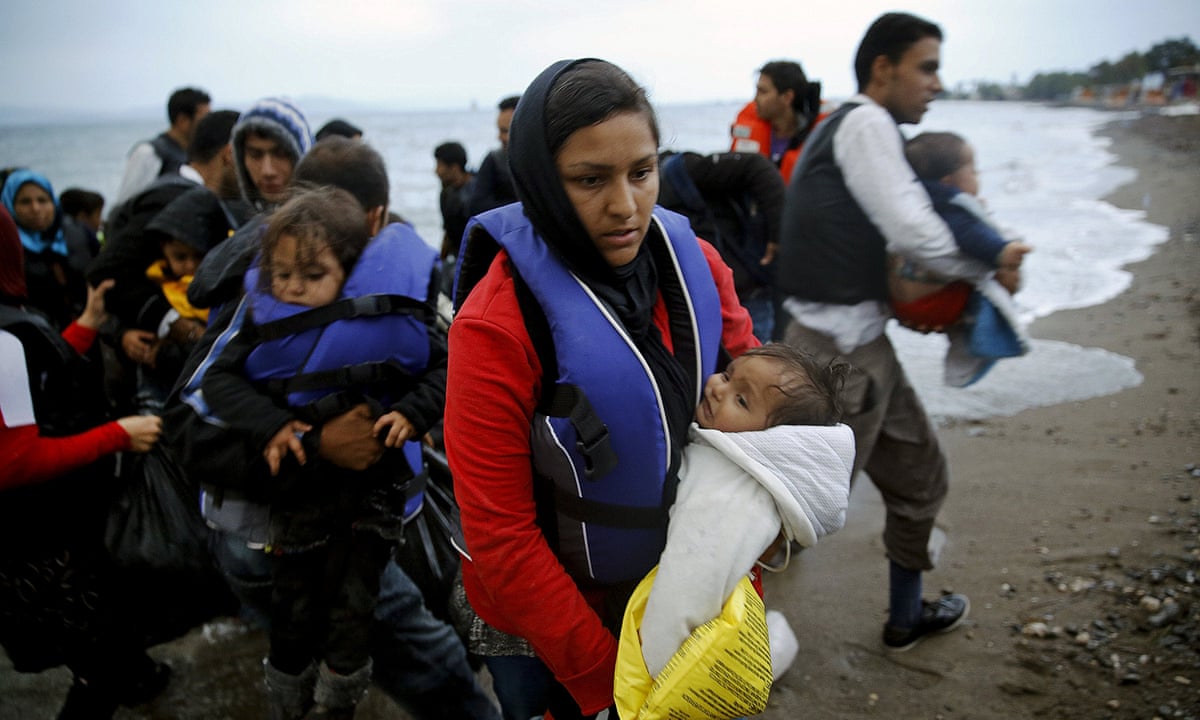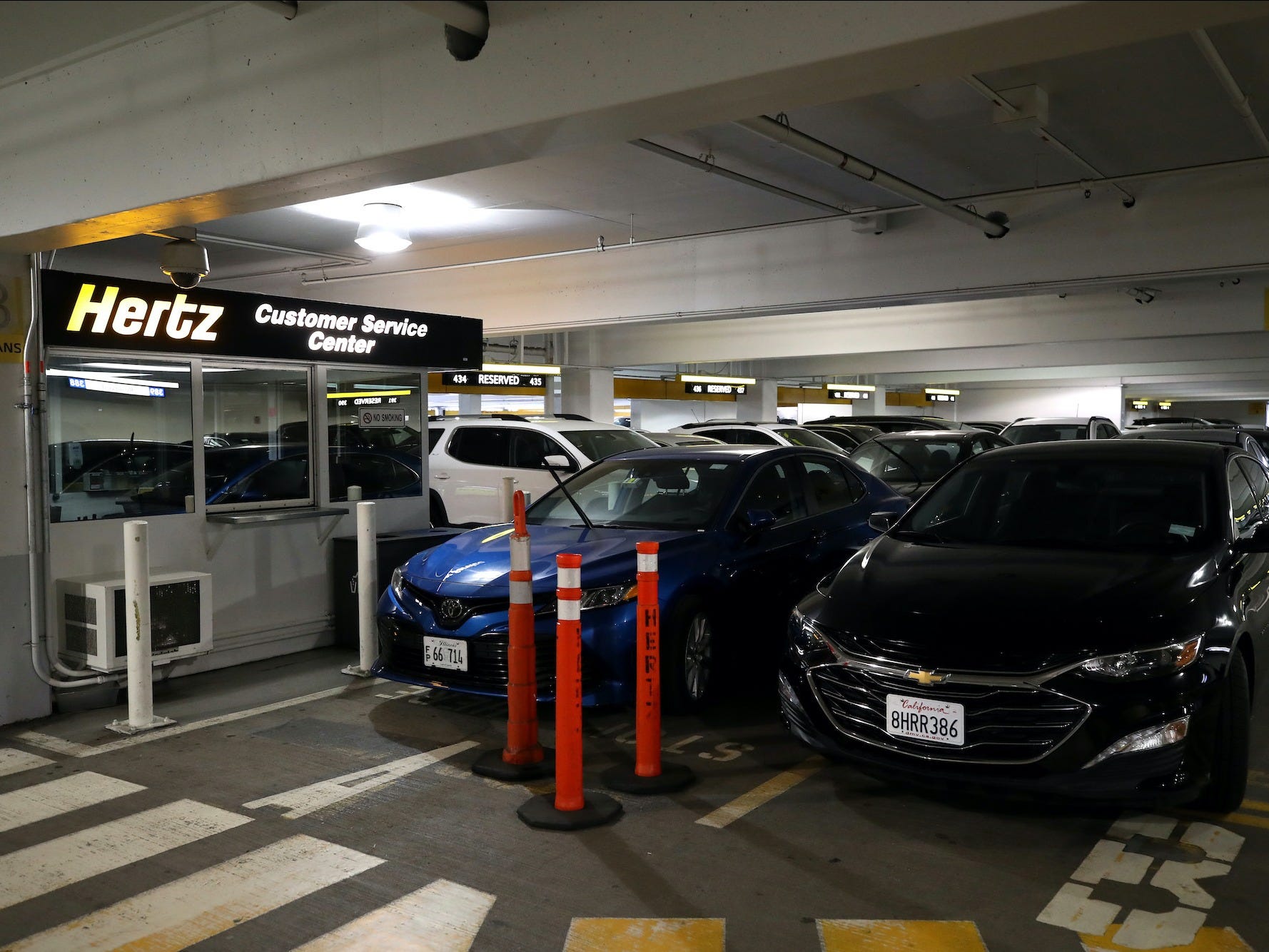But European responses have often been brutal. Humanitarian organizations say pushbacks at borders in countries such as Greece, an absence of sea rescues in the Mediterranean and unhealthy quarantine arrangements have created huge challenges. And it comes at a time when movement is harder and more dangerous thanks to travel restrictions and the closure of transport routes and processing centers.
Last week, a man was found dead on Sangatte beach, near Calais in northern France. He and a friend had tried to cross the English Channel, one of the world’s busiest shipping lanes, in an inflatable dinghy with shovels for paddles. The friend said he was just 16, but French authorities said his papers belonged to a 28-year-old Sudanese migrant and an autopsy showed he was an adult. He couldn’t swim, his companion said.
UK Home Secretary Priti Patel said the “tragic loss” was “a brutal reminder of the abhorrent criminal gangs and people smugglers who exploit vulnerable people.”
The news came on the same day that at least 45 migrants perished in the deadliest recorded shipwreck off the Libyan coast this year, according to the UNHCR and International Organization for Migration (IOM).
The organizations said there was “an urgent need to strengthen the current search and rescue capacity.”
“Delays recorded in recent months, and failure to assist, are unacceptable and put lives at avoidable risk,” they added.
Journeys in a pandemic
Almost 4,900 people have crossed the Channel in small boats since lockdown began, more than double the amount thought to have crossed in the whole of 2019, according to analysis by PA Media.
“We know that smugglers and traffickers have obviously been impacted by the pandemic and the restrictions that were put in place. But we also know they’re very adaptable,” UNHCR spokesman Charlie Yaxley told CNN.
“That’s a big concern for us because it also means that the refugees and migrants who are taking these journeys are taking more dangerous and more risky routes.”
He said migrants were facing torture, rape and other abuse during land journeys to Libya “by smugglers, traffickers, militias, but also state officials.”
Yaxley said there were currently no rescue ships on the central Mediterranean, or EU programs as in previous years, so migrants leaving Libya by boat were often taken back to Libya by the coastguard to face detention or other rights violations.
But the response from European countries burdened by coronavirus has been icy, with migrants forced back or detained in overcrowded, unsanitary conditions.
Felix Weiss, from the German NGO Sea Watch, told CNN he understood the anger from businesses already struggling during the pandemic.
“But this is stuff that you could definitely avoid,” he said. “Just disembark them, and then find a solution where they can go in Europe.
“There has to be a European solution,” he added. “This is a European failure.”
‘Nightmare’ situation
Weiss said conducting rescues had become “a nightmare” during lockdown because of countries including Italy and Malta blocking boats and refusing to act themselves.
Officials say migrants should quarantine for 14 days on ferries, but some have been kept on unsuitable pleasure boats or oil tankers. Migrants with health issues who have endured detention in inhumane conditions have been stranded for up to six weeks, said Weiss.
In July, 180 migrants were evacuated to Italy from a Sea Watch ship after suicide attempts and threats of riots. “People are traumatized,” said Weiss. “The Ocean Viking can take persons for a few days … but we are not trained to have really bad psychological cases.”
Italy’s Interior Minister Luciana Lamorgese said at a news conference on August 15 that families facing economic crisis in Tunisia were “leaving in search of better life conditions.”
“Managing the migrants’ flow has been more difficult due to Covid emergency,” Lamorgese added.
HRW said several asylum-seekers reported being picked up from Greek islands by the coastguard, forced onto inflatable rafts with no motor, and cast adrift near the border.
“Instead of protecting the most vulnerable people in this time of global crisis, Greek authorities have targeted them in total breach of the right to seek asylum and in disregard for their health,” said Eva Cosse, Greece researcher at HRW.
Europe’s responsibility
Many migrant camps and centers pose a major risk for the spread of coronavirus.
On July 30, 129 migrants tested positive for Covid-19 at a camp in Treviso, in Italy’s Veneto region. Lampedusa’s 90-person capacity camp currently has 1,300 residents, according to Weiss.
After more than 200 migrants ran away from a camp in Sicily last month, the region’s governor Nello Musumeci warned in a statement of an “unsustainable situation,” saying “the issue of migrants has also become a matter of public order and health.”
It said that during lockdown, “inequality has been sharpened for transit communities, further limiting access to asylum, healthcare, adequate accommodation, and safety from brutal collective expulsions.”
Yaxley said the situation was still “very manageable,” but there needed to be “EU solidarity with those Mediterranean coastal states through relocation programs … so that there’s a sharing of the distribution of the responsibility.”
“The ad-hoc approach simply inflames the toxic political narrative,” he said.
“There’s a real need for compassion and humanity.”




